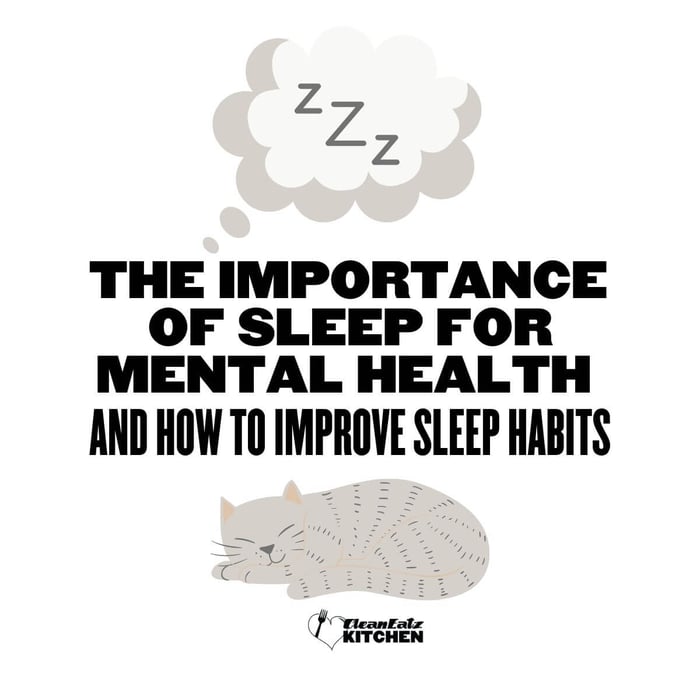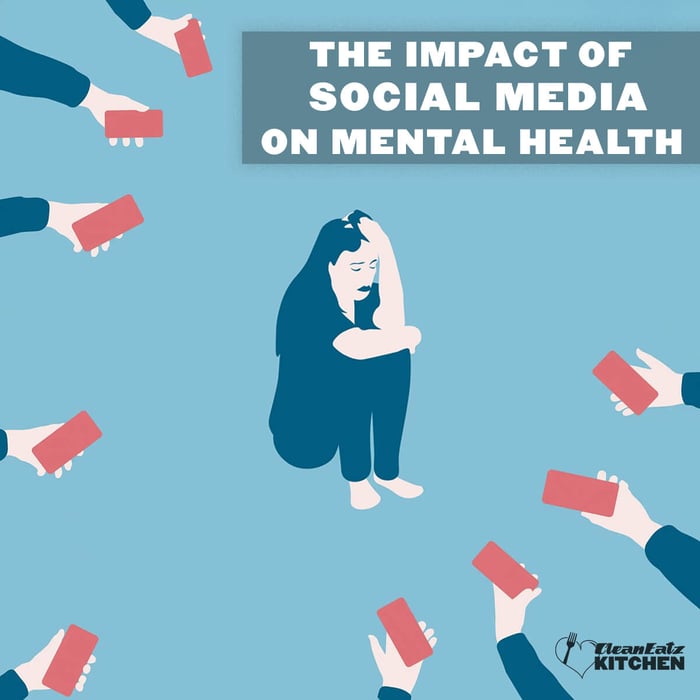The quality of our mental, physical, and emotional health is directly impacted by how much sleep we get each night. Sleep's importance in keeping one's mind healthy is often underestimated. Proper sleep not only rejuvenates our bodies but also plays a vital role in cognitive functions, memory consolidation, and overall well-being. Neglecting its significance can lead to a cascade of detrimental effects on our daily lives. In this article, we will explore the connection between sleep and mental health, discover the importance of sleep for mental health, and provide tips on how to improve sleep habits.
Why Do We Need To Sleep?
Sleep is necessary for maintaining our energy levels, recharging our batteries, and providing our bodies with the ability to heal and revitalize. In addition, getting the least amount of sleep needed is essential to keeping your mind healthy. The events of the day are processed by our brains, memories are consolidated, and our emotions are brought under control when we are asleep.
Sleep deprivation can have a negative impact on mental health. It can cause mood fluctuations, poor focus, and poor decision-making, all of which can have a detrimental influence on mental health.
Benefits of Sleep
Sleep is a fundamental and often underappreciated aspect of our lives, with a profound impact on our physical and mental well-being. Its benefits extend far beyond just rest and relaxation, encompassing a wide range of essential functions that are crucial for our overall health and daily performance. It has been shown that having enough sleep can help do the following to our health.
Improved Mood & Increased Feelings of Happiness
Sleep is necessary for general health and well-being, including controlling one's emotions. During sleep, the brain processes and stores the feelings and experiences it has had throughout the day, which contributes to the preservation of emotional equilibrium.
Reduced Anxiety & Stress Levels
Stress and anxiety can be alleviated with a good night's sleep, thanks to its positive effects on the body and mind. In order to maintain a healthy mood and lower levels of stress and anxiety, the body controls cortisol levels and processed emotions when we sleep. Hence, individuals can drastically lower their anxiety and stress levels by making sleep a priority.
Increased Cognitive Function & Memory Recall
During sleep, the brain analyzes and stores newly acquired information and experiences, which makes it easier for the brain to recall this information at a later time.
In addition to supporting the brain's capacity for learning and adaptation, sleep also plays a role in the development of new connections between different brain cells. A sufficient amount of sleep boosts alertness and lessens exhaustion, which in turn improves one's capacity to concentrate and pay attention to new material.
Enhanced Problem-solving Skills
A sufficient amount of sleep boosts alertness and decreases feelings of exhaustion, which improves overall cognitive function and the ability to make decisions. An adequate amount of sleep raises one's level of alertness and lowers their level of exhaustion, which improves one's capacity to concentrate and pay attention to new information.
A person's capacity to learn new knowledge and remember previously acquired information can be improved, as can their cognitive function if they get an acceptable amount of consistent sleep.
Consequences Of Poor Sleep
Conversely, the consequences of poor sleep are numerous and can be severe. All of which can have a negative impact on mental health. Studies have linked poor sleep can result in the following conditions:
Risk of Developing Depression & Anxiety Disorders
The connection between sleep and mental health is complex, and research has yet to uncover the exact mechanisms that link the two. However, scientists believe that lack of sleep can increase levels of the stress hormone cortisol, which can then lead to an increased risk of developing mental health problems.
Depression and anxiety are two mental health issues that can be exacerbated by not getting enough good quality sleep.
A lack of sleep can throw off the balance of hormones in the body, including the stress hormone cortisol and melatonin, which helps regulate mood and stress levels.
Irritability
Elevated cortisol levels and mood changes caused by poor sleep also contribute to irritability. To avoid these adverse effects, it's essential to prioritize good quality sleep and establish healthy sleep habits.
Decreased Motivation & Energy Levels
You're likely to feel tired and sluggish when you don't get enough sleep, which can sap your energy and motivation.
How to Improve Sleep Habits
So, how can you improve your sleep habits to support mental health?
Here are a few tips to get you started:
Establish a Sleep Routine
Maintaining a regular bedtime schedule can assist in regulating the circadian cycle of the body, which in turn can improve the quality of sleep that one gets. Even on the weekends, you should maintain a regular bedtime and get-up time.
Create a Sleep-Conducive Environment
The setting in which a person sleeps can significantly influence the overall quality of that person's sleep. Investing in cozy bedding, taking steps to lessen outside noise, and ensuring that the room is kept at a reasonable temperature and level of darkness can all contribute to a sense of calm within the space.
Limit Screen Time Before Bedtime
There is a connection between blue light and sleep. Melatonin, the hormone that controls sleep, can inhibit its synthesis when exposed to blue light, such as that released by electronic devices. Make it a goal to turn off all electronic devices at least one hour before going to bed.
Avoid Stimulants
It is vital to steer clear of substances that disrupt sleep, such as caffeine, nicotine, and alcohol, particularly in the hours preceding bedtime.
Practice Relaxation Techniques
It can be challenging to get to sleep when you're anxious or stressed out. Your ability to calm your mind and get ready for sleep may benefit from including relaxation techniques as part of your daily routine. Doing yoga, meditation, or deep breathing exercises helps.
Final Thoughts
In conclusion, getting enough sleep is necessary for the maintenance of a healthy mental state. You can enhance your sleeping patterns and boost your mental well-being by following the advice that has been provided above. It is crucial to remember that despite the complexity of the relationship between sleep and mental health, making sleep a higher priority in your life can significantly impact your overall health and happiness. It is essential to place a high value on sleep and to make it a priority in your day-to-day activities if you want to keep your mental health in good shape. You can improve your sleeping patterns and experience the benefits of a restful night's sleep with just a little work and commitment.
FAQ
Is sleep a mental disorder?
No, sleep itself is not a mental disorder. It is a natural physiological process that is essential for overall health and well-being. However, certain sleep disorders, such as insomnia or sleep apnea, can impact one's mental health if left untreated.
How does sleep affect your mental health?
Sleep plays a crucial role in regulating mood, emotions, and cognitive function. Adequate, quality sleep is essential for maintaining good mental health. Sleep deprivation can lead to mood swings, increased stress, anxiety, and even contribute to the development of mental health disorders like depression.
How does lack of sleep affect the brain?
Lack of sleep can have a significant impact on the brain. It impairs cognitive function, memory consolidation, and decision-making. Prolonged sleep deprivation can lead to cognitive deficits, mood disturbances, and an increased risk of neurological conditions.
Is it OK to stay in bed all day once in a while?
While occasional rest days can be beneficial for relaxation and recovery, staying in bed all day regularly is not recommended. Prolonged periods of inactivity can lead to physical and mental health issues, including muscle stiffness, decreased mood, and a disruption in sleep patterns. It's essential to maintain a balance between rest and activity for overall well-being.




